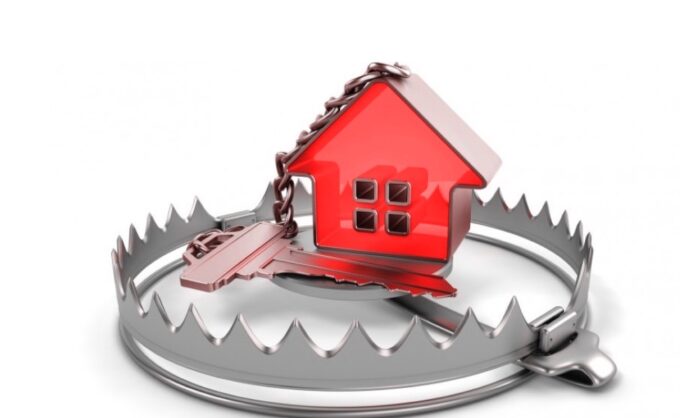
Source: techrepublic.com
Buying property online has never been easier. But with that convenience comes a rising threat—cyberattacks targeting both buyers and real estate professionals. Whether you’re purchasing a new home, an investment apartment, or a commercial space, you need to recognize the risks and know how to stay secure.
Let’s break down the real threats, how they work, and how to protect yourself through practical steps that work.
Common Cybersecurity Threats in Online Property Transactions
Real estate cybercrime is growing fast. Attackers are watching real estate agents, lawyers, and buyers with one goal—stealing your money. Here’s how they do it.
Phishing Emails
Hackers impersonate agents or attorneys. You get an email with fake instructions to send a deposit. You follow it. Your money disappears.
These emails look real. Same logos. Same language. The only hint is a slightly altered email address or link. Most people miss it.
Wire Fraud
This is one of the biggest threats. Cybercriminals intercept real estate communication chains, monitor them silently, then send a fake email at the last minute with “updated wiring instructions.” Once the funds are sent, they vanish overseas.
Malware and Ransomware
Some criminals plant spyware into real estate websites or email attachments. You download a brochure or click a link, and now they track your keyboard or lock you out of your computer.
Public Wi-Fi Traps
Browsing listings or submitting documents over café Wi-Fi sounds convenient. But it’s dangerous. Fake Wi-Fi hotspots mimic legitimate ones and allow hackers to access your emails, logins, and financial info.
Fake Listings
Scammers create property listings that don’t exist. You contact them, they respond professionally, ask for a holding deposit, then disappear. You lose both time and money.

Source: housing.com
Secure Real Estate Platforms Matter
If you’re buying abroad, the risk increases. Local regulations, unfamiliar procedures, and unknown service providers create more opportunities for fraud. One smart way to avoid traps is to work with trusted names with proven experience in handling safe transactions.
Take real estate Malta, for example. Their team at Excel Homes not only offers a free valuation with no obligations but also ensures you’re not alone during the process. Whether you’re setting the right asking price or navigating complex paperwork, you’re protected by expertise—not left to guesswork. That’s the kind of professional help that filters out cyber risk before it gets to you.
Reputable platforms and agencies with clear ownership, GDPR-compliant processes, and full client support give you confidence that your data and your money are in safe hands.
How to Spot a Real Estate Scam Before It Happens
Trust your instincts, but also verify every detail. Even small red flags could signal a large threat.
Red Flags to Watch
- Urgency or pressure to act fast
- Requests for unusual payment methods
- Email addresses that don’t match official websites
- Bad grammar or formatting in professional communication
- Too-good-to-be-true deals without viewings
Never assume the sender is legitimate. Always call your agent using a known number—not the one listed in the email—to confirm any payment instructions.

Source: rivieramayablue.com
Best Practices to Protect Your Online Property Purchase
You don’t need to be an IT expert to stay secure. Just follow simple, high-impact steps to limit exposure.
Use Two-Factor Authentication
Every account involved in your real estate purchase—email, banking, client portals—should have two-factor authentication. It blocks unauthorized access even if your password gets stolen.
Avoid Public Wi-Fi
Don’t handle real estate transactions on unsecured networks. Use mobile data or a trusted home network. If you must connect on the go, use a paid VPN that encrypts your activity.
Set Strong Passwords
No more “123456” or pet names. Create unique, long passwords using upper and lowercase letters, numbers, and symbols. Never reuse passwords across accounts.
Store Sensitive Docs Securely
Avoid saving documents like mortgage pre-approvals or ID scans on your desktop or email. Use encrypted cloud storage with secure access controls.
How Real Estate Professionals Can Minimize Client Risk
Agents, brokers, and legal teams carry a major responsibility. Cybersecurity isn’t just for IT teams—it’s a client protection tool.
Key Cyber Hygiene Habits for Agents
- Use secure email servers with SPF/DKIM protocols.
- Avoid sending sensitive data as plain-text attachments.
- Educate clients about confirming wire instructions by phone.
- Invest in cybersecurity insurance for added protection.
When real estate teams adopt strict cybersecurity practices, clients benefit from a secure experience from offer to close.

Source: blog.rsisecurity.com
What To Do If You Suspect a Cyberattack
Sometimes, even with best practices in place, things go wrong. If you think you’ve been targeted, act fast.
Immediate Steps
- Stop communication with the suspected party.
- Call your bank to stop or recall any transfer.
- Notify your agent or legal representative immediately.
- Report the fraud to local cybercrime authorities.
Speed matters. The earlier you act, the higher the chances of recovery. Never wait for “confirmation.” Always investigate immediately.
Final Advice – Think Before You Click
Buying property online is safe—only when handled smartly. Every click, download, or email reply can open or close a door to risk. Work only with established professionals. Validate every step. Confirm all money movements by voice. Question everything that looks slightly off.
Cybercriminals succeed because people don’t expect danger in real estate. But the stakes are high—money, identity, and legal ownership.
Stay alert. Ask questions. Use secure systems. And if in doubt, stop the process until everything checks out.
Online real estate deals are fast, convenient, and global. But cyber threats are rising just as fast. Fake emails, wire fraud, and scams wait for a single weak point. Protect yourself by using trusted professionals, strong digital habits, and secure platforms.
Smart buyers stay skeptical, stay secure, and stay in control.
Buying online? Stay sharp. Every click counts.



